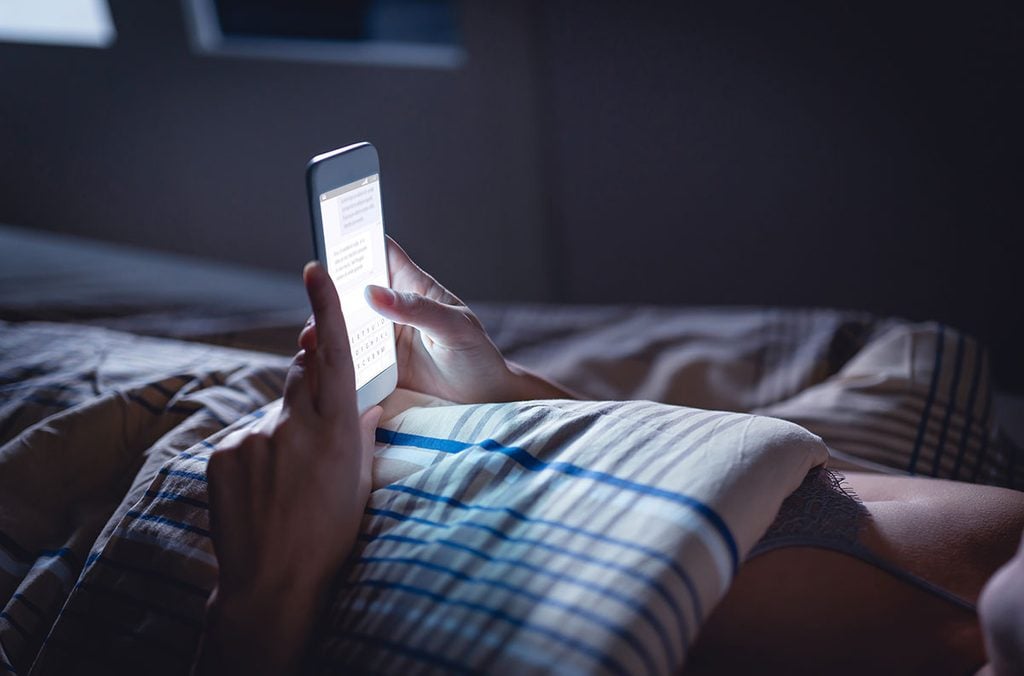How Social Media Is Ruining Your Sleep

Think twice before bringing your phone into bed with you tonight.
How Social Media Is Affects Sleep Quality
If you fall asleep just fine but your first order of business is to hit the snooze button (repeatedly) when you wake up, you may need to learn how to sleep better. In June 2015, a survey of 3,000 Canadians by IPG Media Brands found that one in four Canadians wakes up feeling so unrefreshed that they call in sick to catch up on their sleep.
If you think that technology might be impacting your sleep, you’re not alone. Poor sleep habits are increasingly being blamed on technology (including your TV), and it could be the issue. But your phone, with its tantalizing social media apps, could be the biggest culprit.
It’s Not Just Blue Light Keeping You Up
“The explosion of social media and people staying on devices for longer—and taking them to bed with them—is a huge problem,” says Dr. Helen Driver, a somnologist and assistant professor at Queen’s University in Kingston, ON. The blue light emitted from your phone or tablet is overstimulating, despite special screens and other gimmicks that promise to minimize the effect, she says. “If you look at how a normal day goes, dawn is more blue light and dusk—when you should be going to bed—is warmer red light, which is less alerting.” And it’s not just the light from your phone that’s a sleep liability; it’s the interactive nature of all devices and the overstimulation that comes with them. (Aside from your iPhone, your diet can also be wrecking your sleep.)
In January, researchers at the University of Pittsburgh found that young adults who spend a lot of time on social media are more likely to suffer sleep disturbances. “We already know about the link between technology and sleep problems but not about the nature of social media and its unique association with sleep disturbances,” says Dr. Jessica Levenson, a clinical psychologist and co-author of the study. “Social media could affect sleep because of the light emitted from the screen, because the content is emotionally engaging or because people just get caught up doing it and go to bed later—or it could be a combination of all three.”
Go Tech-Free 2-Hours Before Bed
Dr. Samuels would like to see people significantly curb their reliance on these devices. “All technology should be off by 8 p.m., or two hours before bedtime.” Dr. Levenson, however, adopts a more moderate approach: “Develop awareness around your social media habits. Are you awake and using it to pass time, or are you anxious and using it as a distraction? Think about how you use social media and how it might be affecting your sleep and then adjust accordingly.”
If you have trouble logging off in the evening, gradually dimming the backlight of your devices as you power down may help. But, ultimately, say the experts, the key is to turn off all screens as early as possible to allow your body and mind to get into sleep mode.
Next, see the signs you’re oversharing on social media.




